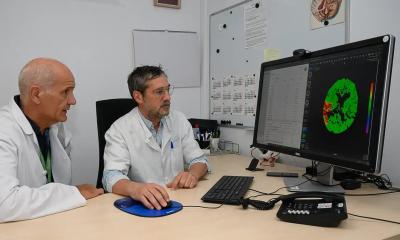Diagnosis, Management, Treatment
EPDA Champions Change for People with Parkinson’s Disease in Europe
To mark the first European Parkinson’s Action Day on April 12th, the European Parkinson’s Disease Association (EPDA) announced the launch of a major new investigation into the care of people with Parkinson’s across 36 European countries. Parkinson’s disease is the second most common progressive neurodegenerative condition which affects people from all around the world.
The research is being undertaken as part of a three year programme by the EPDA to build the largest bank of comparable data on Parkinson’s diagnosis, management and treatment practices across Europe. Ultimately the organisation wishes to use this research to help decision makers and healthcare professionals improve the quality of care for people with Parkinson’s. Results from the first wave of the survey will be announced at the second European Parkinson’s Action Day in 2011.
“We’re delighted this important research has been launched across Europe. Action is needed now to identify gaps in Parkinson’s disease care so we can encourage and support Governments in improving patient services and outcomes”, comments Knut-Johan Onarheim, EPDA President. “Parkinson’s affects a staggering 6.3 million people worldwide and the social and economic burden of the disease continues to grow. We know if treated early and properly we can help to significantly reduce the human and social costs of the disease. This is our aim for people with Parkinson’s across Europe.”
Both the new research and the European Parkinson’s Action Day form part of the EPDA’s Move for Change initiative. Launched in 2009, Move for Change aims to instigate change at the highest levels to ensure that people with Parkinson’s receive proper diagnosis and treatment at the right time.
For more information on the EPDA’s research project or the Move for Change initiative, please visit: https://www.epda.eu.com/media/1418/move-for-change-booklet-low-res-for-web.pdf
About EPDA
The European Parkinson's Disease Association (EPDA) is a non-political, non-religious and non-profit making organisation concerned with the health and welfare of people living with Parkinson's disease and their families and carers.
The EPDA, founded in 1992, helps support more than 1.2 million people with Parkinson’s and their families across Europe. It has a membership of 43 Parkinson’s disease associations (representing more than 200,000 people with Parkinson’s and their carers) and seven associate members, including the Movement Disorder Society (MDS), European Federation of National Societies (EFNS), European Federation of Neurological Associations (EFNA) and Association of Physiotherapists in Parkinson’s Disease Europe (APPDE).
Vision: Enabling full life with Parkinson’s while supporting the search for a cure.
Mission Statement: To ease the lives of people with Parkinson's disease and their families and carers by promoting a constructive dialogue between science and society, and by encouraging and supporting the development of national Parkinson's disease organisations.
Update: A national initiative in the U.S. that is dedicated to the research and raise awareness for the use of CBD (Cannabinidol) oil for Parkinson's treatment is DrugScience.org
13.04.2010











